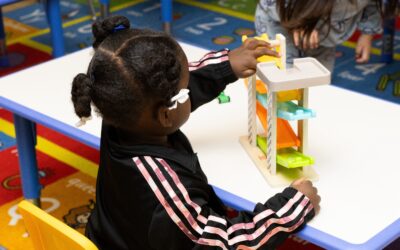For many parents, its never too early to start thinking about college. For parents of children on the spectrum, the path to college may feel uncertain. Since some children on the spectrum will struggle with academics due to their symptoms, it may feel like college isn’t an option. This isn’t necessarily the case, but there are several factors to consider when thinking of college preparedness and children on the spectrum. In this post, we’ll discuss some of the main considerations parents face when thinking about autism and college.
Academics
Especially for younger children, autism’s symptoms can pose a serious challenge for their academic success. Some of the most common symptoms include:
- Challenges with verbal and non-verbal communication.
- Challenges reading and understanding social cues and by extent, challenges with social interaction.
- Sensitivity to sensory stimulation and interpretation, causing sensory meltdowns or tantrums.
- Delayed developmental learning and cognition and by extent, challenges in traditional classroom settings.
All of these can make the path through school very difficult. This is especially true if the child goes misdiagnosed or without the proper treatment and support. Many schools offer support in the classroom such as an Individualized Education Program (IEP) that allows for the student to receive special education. Applied Behavior Analysis (ABA) therapy can also help support your child’s academic success with treatment outside of the classroom.
Accommodations
Special accommodations are no longer few and far between. Unfortunately, that doesn’t always mean they are easily accessible to the people that need them most. If your child is receiving any accommodations in school now, it may be hard to replicate in a college or secondary education program. Finding the right accommodations will take some time and research and the institution may even require new behavioral or cognitive assessments for approval. If you need assistance finding a school or program with the right resources and accommodations, talk to a counselor or reach out to the institution’s department of student services.
Distance
Arguably one of the most common collegiate struggles for parents is the possibility of the new distance between them and their child. For children on the spectrum separation anxiety and other distance-related challenges can make for an extremely difficult transition. That being said, college doesn’t have to be a long-distance endeavor. If it is, technology can help bridge that connection. On top of that, a counselor or aid may offer some peace of mind by serving as support when you can’t be there. Either way, it’s an important consideration for parents to take into account when preparing their children for attending college.
Opportunities
The path to college isn’t only comprised of challenges. There are countless opportunities for people on the spectrum to succeed. Whether its a more traditional degree program or a specialized technical school, great experiences and careers await. Use your resources and do the research to see what could be the right path for your child while ensuring they’re set up for success in the short term with plenty of support and treatment. A great way to get a better sense of what might be a good path for your child is paying attention to their interests early and build on them with every opportunity.
For more ABA and autism-related news and tips visit our blog and follow us on Facebook, Instagram, YouTube, and Twitter! If you have questions regarding ABA therapy services or you’re interested in visiting one of our locations, don’t hesitate to reach out to us on our contact page. We’re always here to answer your questions and support your family’s needs as best as we can.



